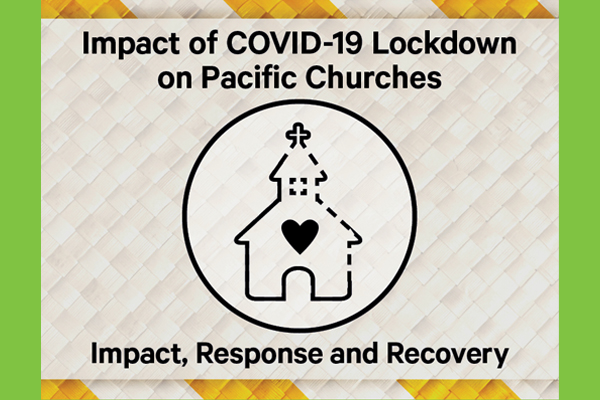Report shows how churches navigate new territory
Report shows how churches navigate new territory

As people faced a time of uncertainty during the first nation-wide COVID-19 lockdown in March last year, church leaders were voluntarily doing all they were able, to navigate a new territory to support members spiritually, and where possible, tangibly.
The role of churches has proved pivotal in enhancing family resilience and wellbeing at this time, and Pacific churches were a pillar of hope and support for many Pacific families in Aotearoa.
A report recently launched online by the Ministry for Pacific Peoples (MPP), the Impact of COVID-19 on Pacific Churches Impact, Response and Recovery, explores the role of churches during the first lockdown in New Zealand, from March 25 March to June 8, 2020. Read the report here.
Dr ‘Ana Koloto is the Director of the MPP Research and Evaluation team, who co-led the study featuring voices and experiences of a diverse array of church leaders and churches.
She says Pacific churches were actively supporting their church communities and ensuring key messages reached the Pacific community during lockdown.
“Churches across Aotearoa experienced both positive and negative impacts of the lockdown, yet despite the disruptions and constraints to church programmes, some churches demonstrated resilience, resourcefulness, and transformation,” ‘Ana says.
“This study focuses on understanding the impact of the COVID-19 lockdown on church programmes and family needs, and the response of churches to family needs and recovery efforts during this pandemic.”
Research for the project adopted a mixed methods approach, including a survey, which a total of 145 church leaders responded to, and case studies with four churches.
“Results showed church leaders had seen a growth in attendance and more connected families due to the church moving away from the pulpit into family homes and living rooms,” ‘Ana says.
“Embracing digital platforms such as Facebook is not as daunting now for some people as the lockdown had encouraged them to use it if they wanted to communicate, be informed, and stay connected.
“Spiritual growth was felt in family homes as individual members drew closer to God and parents were imparting spiritual and life lessons to their children.”
Relations between families, and married couples were strengthened due to being under the same roof during lockdown.
Parents were engaging with their children and becoming more aware of their education by spending time with them in their learning – although challenges arose when there was a void of devices or internet access in households.
However, the impact of the lockdown on vulnerable groups such as the elderly, widows, single women, single parents, children, and youth was evident for a variety of reasons.
Undoubtedly, churches were key to supporting families during the lockdown, and with the survey revealing 52 percent of churches were able to use their own church resources to support families; 41 percent utilised government funding; 23 percent used funding from support agencies; and 13 percent used business sponsorship or other funding.
“The findings show some families were helped through the church applications made to available funding from the Ministry of Social Development, while others were helped directly by Pacific service providers after being referred by churches,” ‘Ana shares.
She says among other findings was being prepared is essential; the importance of good governance and leadership; and the need for churches to recognise the skills and expertise of young people to contribute to church and community development.
“The study highlights instances where young professionals who traditionally were not visible before the pandemic but became leading individuals during the lockdown.”
Overall, the study has had implications, including evidence Pacific churches can contribute to the Lalanga Fou goals and that faith and spirituality are key components of Pacific wellbeing.
‘Ana adds it also shows the Ministry’s key programmes rely on the partnerships and connections it has with Pacific communities, and this study supports the importance of continually strengthening partnership with Pacific churches.
“This research may be considered a baseline study of the role of churches in responding to the needs of Pacific families, with findings pointing to important areas for future research to refine and further elaborate.”
With New Zealand, and now just Auckland, back in Alert Level 4, churches have once again challenged with similar issues as they faced in the previous lockdown.
This time, however, they are more informed and aware of how to pull through these trying times, thanks to research such as this report.
